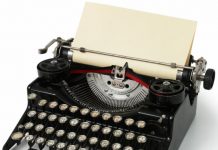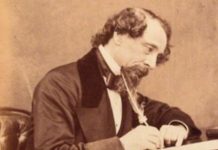 One of the better critiques from 2014 of the MFA in Creative Writing industry, and the whole problem of MFA graduates’ sense of entitlement, came to mind recently when I reread Maya Angelou’s celebrated quote: “Some critics will write ‘Maya Angelou is a natural writer’ – which is right after being a natural heart surgeon.” Because, yes, I do very much endorse the view that creative writing is a craft-based discipline. Stephen King’s On Writing is subtitled A Manual of the Craft for a reason. Language is a means of communication because it works by common norms, and these can be refined and honed through natural genius or sheer hard work – often done alone or with a teacher or mentor, and sometimes advantageously developed in focus groups and even MFA program-style settings. No Romantic dogma about “the spontaneous overflow of powerful feelings” is going to disguise the fact that you need to work at how to say what you want to say well, and writers and critics have been writing and arguing against that particular Romantic doctrine almost ever since it was voiced.
One of the better critiques from 2014 of the MFA in Creative Writing industry, and the whole problem of MFA graduates’ sense of entitlement, came to mind recently when I reread Maya Angelou’s celebrated quote: “Some critics will write ‘Maya Angelou is a natural writer’ – which is right after being a natural heart surgeon.” Because, yes, I do very much endorse the view that creative writing is a craft-based discipline. Stephen King’s On Writing is subtitled A Manual of the Craft for a reason. Language is a means of communication because it works by common norms, and these can be refined and honed through natural genius or sheer hard work – often done alone or with a teacher or mentor, and sometimes advantageously developed in focus groups and even MFA program-style settings. No Romantic dogma about “the spontaneous overflow of powerful feelings” is going to disguise the fact that you need to work at how to say what you want to say well, and writers and critics have been writing and arguing against that particular Romantic doctrine almost ever since it was voiced.
That isn’t to say, though, that the MFA pipeline is the ideal conduit to creative and commercial success. And there are some fairly obvious and easy-to-digest arguments for why an MFA in Creative Writing could be exactly what you do not need to be a successful writer – on whatever terms.
For one thing, there’s the personal biography. For better or worse, marketing machines love life stories. If your potted biography is interesting, if it throws off handy hooks for marketers, you’ll be far more likely to be picked up by publishers and readers. Regrettable, perhaps. But inevitable.
Then there is the awkward issue of the novel as empathy engine. Neil Gaiman and many, many others have spoken and written at length on the value of literature, fiction, and the novel as means to build empathy and understanding of other viewpoints and personalities. Now, how much human sympathy are you going to have if your experience of other ways of life and other human situations is limited? Perhaps you’ll have the personal gift of immediate insight into others’ minds and hearts – good if you do. But it wouldn’t hurt to have some insight into their environment, social circumstances, and all the other external factors that come from actually living alongside them as well.
Finally, there’s the problem of the loneliness of the long-distance writer. As Ernest Hemingway put it, “writing, at its best, is a lonely life.” You wonder how much of his almost insanely dramatic existence was overcompensation for that. And yes, some writers are fated to emulate Emily Dickinson and go through their creative lives in seclusion. But Emily Dickinson, to my knowledge, never enrolled in an MFA program. So if you are making that deliberate choice to develop your gift via the academic route, why not fix the parts that the typical MFA syllabus won’t reach?
Even the most ardent MFA advocate shouldn’t have much trouble fitting this into the program and even timetabling it. Take a year out. Do something stupid. Devote yourself to some activity or great cause that has nothing whatsoever to do with writing. Get drunk. Travel. Fall in love. Make mistakes. Absorb great ideas. Embrace the world. At the end of the day, you’re far more likely to have something worth writing about. And even if you don’t get a book out of it, at least you’ll have had a life.

































Great article.
You say, “Get drunk.”
I agree. So did this well-know writer who you already quoted.
“Write drunk; edit sober.”
— Ernest Hemingway
Insofar as,”arguments for why an MFA in Creative Writing could be exactly what you do not need to be a successful writer” I offer this quote by this 16th century writer.
“I prefer the company of peasants because they have not been educated sufficiently to think incorrectly.”
— Michel de Montaigne
Of course, the only way to know anything definitely about success and
prosperity as a writer is to attain them for yourself by yourself — anything less is hypothesis, idle talk, and folklore.
Ernie J. Zelinski
The Prosperity Guy
“Helping Adventurous Souls Live Prosperous and Free”
Author of the Bestseller “How to Retire Happy, Wild, and Free”
(Over 225,000 copies sold and published in 9 languages)
and the International Bestseller “The Joy of Not Working”
(Over 275,000 copies sold and published in 17 languages)
Craft can be taught, but the ability to tell stories and create real people can only be honed. Some are natural storytellers, some create real people, and the real geniuses can do both as well as add a certain magic to the page. Those who have neither ability can still write novels and stories, but those stories are instantly forgettable and leave a reader searching for something with more substance to it.
I was considered a decent poet before I started writing fiction, and they are two different disciplines with different rules. The only real similarity is in the important choice of words.
Anyone who believes the drunk author fallacy is just a drunk looking for an excuse to drink. Hemingway was a mentally ill suicide and a drunk so he’s not a role model any of us should emulate. Alcohol and drugs are just a modern version of the romantic muse myth.
Writing is HARD, it is sit on your butt in front of a computer or a piece of paper for long periods of time, it is years of learning craft, editing, and honing your stories. None of that is fueled by drugs or alcohol.
The MFA has its value. It teaches literary writers how to craft stories for NY literary editors and the teachers have contacts within the NY literary community. Lots of money can be made if one of its graduates hit the current sweet spot of taste.
In most cases, a MFA is totally useless for a genre writer, and the writer will have to relearn how to write for that market.
If anyone is interested in the difference between the two types of fiction, here an article I wrote on the subject.
http://mbyerly.blogspot.com/2014/12/literary-versus-genre-fiction-defining.html
Anyone who wants to learn to write genre would be better served by many of the excellent online writing schools for specific genres as well as courses from various RWA chapters.